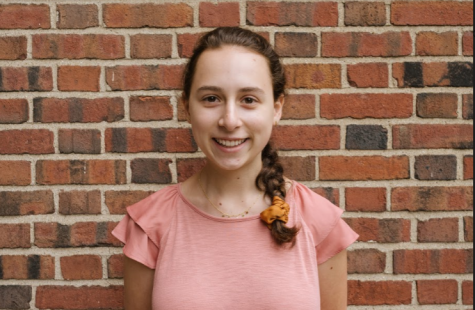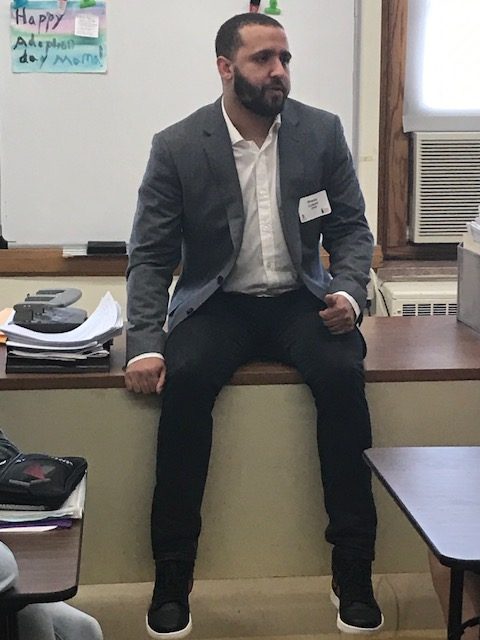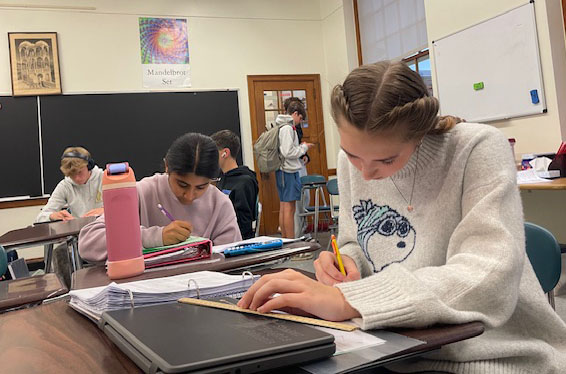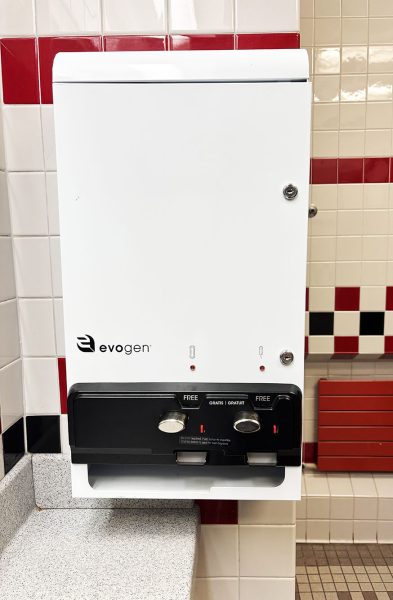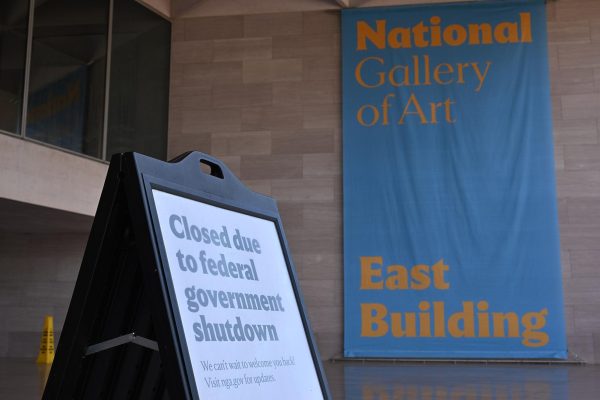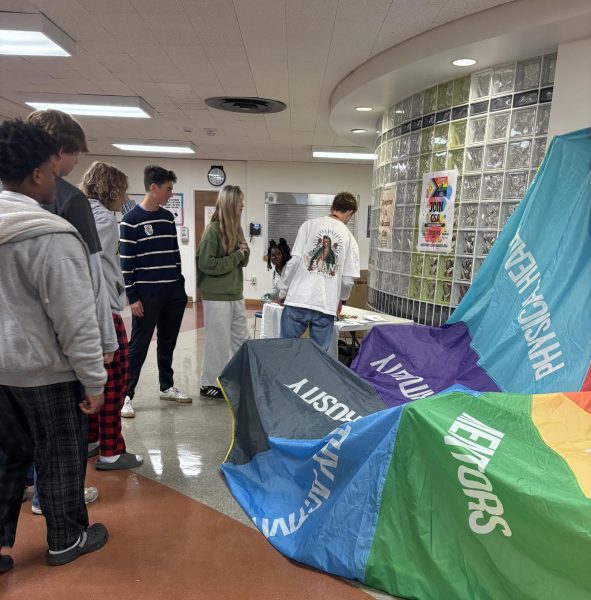The Sooner You Start, the Better
Former Shakerite chief Wesley Lowery, a two-time Pulitzer winner, spoke to journalism class about today’s media and tomorrow’s expectations
The role of journalists is to verify and clarify news, former Shakerite editor and current Washington Post reporter Wesley Lowery explained to journalism students in a round-table discussion Oct. 9.
“We verify the information, we drill into the information and we clarify the information,” Lowery said. “Anytime there is a major story, there’s going to be information that is false. This makes it more important that we do our job as journalists.”
Lowery (’08) visited the high school to be inducted into the Shaker Heights Alumni Association Hall of Fame, an honor only 270 alumni to date have been awarded. Afterward, Lowery talked with journalism students and Shakerite editors about his experiences as a journalist.
Lowery said that his work at The Shakerite helped him later as he entered professional journalism.
“Journalism is a trait,” Lowery said. “[The] sooner you start doing these things, you get better.”
In his professional career, Lowery has covered the Boston Marathon bombing, the Black Lives Matter movement, police brutality and politics. In 2014, he contributed to the Boston Globe’s coverage of the bombing, which earned a Pulitzer Prize in breaking news reporting. In 2016, he and Washington Post colleagues won a Pulitzer Prize in national reporting for their investigation of police shootings nationwide. Washington Post Editor Marty Baron credited Lowery with the idea, which Lowery proposed after covering the 2014 shooting death of Michael Brown in Ferguson, Mo.
In November 2016, Lowery’s book, “They Can’t Kill Us All,” inspired by his reporting on the Black Lives Matter movement, was published and became a New York Times bestseller.
Most recently, Lowery reported on the Las Vegas shooting. He said that being a journalist helps him process traumatic events.
“I don’t have to have a moment of crisis. When I see something, I know exactly what it is I do. I go to my desk and start doing phone calls. I get on an airplane and I go. I have a thing to do to help me process it,” Lowery said.
However, Lowery said that there are limits to his work. “There are places I do not go,” he said, adding, “If I’m not writing about the video [of a shooting] I don’t watch it.”
Lowery also said that social media helps him find sources and talk directly with readers. “It [social media] becomes a way to find people in a way that you weren’t able to,” he said. “It allows us to have a better understanding of what’s happening around the country.”
Lowery shared his journalistic knowledge with the students, including interview tips and tricks.
“One of the biggest things to learn is that it’s our job to be brash and direct,” Lowery said. He added that students looking for interviews with important people should, first and foremost, ask.
He also said that readers have “a major issue with media literacy” and that journalists sometime write pieces and discuss their work in ways that only journalists can understand. As a solution, he suggested that the journalism students write with language everyone understands.
The conversation was one of four round-table discussions conducted by inductees, the first of their kind and the creation of Holly Coughlin, executive director of the Shaker Schools Foundation.
Lowery concluded on an optimistic note. He said, “There are so many people that are doing hard work; it gives me hope.”
Comment using your Facebook, Yahoo, AOL or Hotmail account
